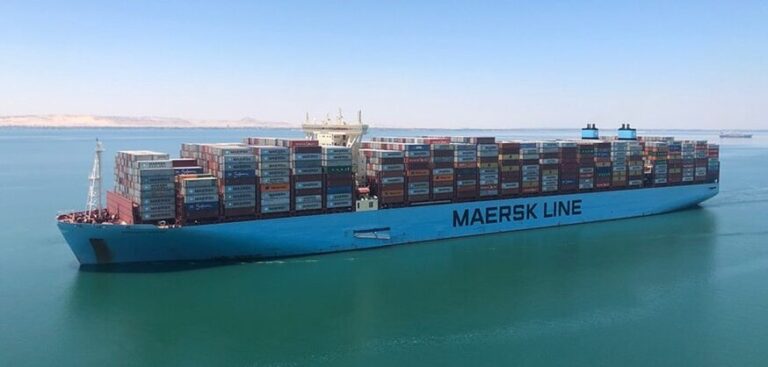Germany’s national meteorological service Deutscher Wetterdienst (DWD) has installed automated weather stations (AWS) on 50 shipping vessels to gather live data for weather and climate forecasting.
DWD and the Danish integrated container logistics company A.P. Moller – Maersk have collaborated since 2019 as part of the global Voluntary Observing Ship (VOS) program within the Global Ocean Observing System (GOOS). As the partnership operated through manual weather observations, data sharing happened slowly. By implementing AWS, the vessels can deliver precise, high-quality, standardized data in real time to give DWD insights into the current meteorological situation at sea. The data provided is shared globally with all members of the World Meteorological Organization (WMO).
Currently, approximately 300 Maersk vessels are gathering and sharing their weather and sea-state observations with the VOS. The DWD service provided the 50 systems being installed on the vessels. Ship observations, alongside other ocean, land-based and satellite observations, are used in global and regional climate analyses and combined with atmospheric-ocean climate models. These observations also help to ensure safety at sea by enabling better forecasting of storms and other extreme ocean-related events.
Maersk also announced recently that it has released all historical and future ocean weather observations into the public domain for free use by the scientific community around the globe.
Darin Figurskey, the global lead for the ship observations team (SOT) under GOOS and a forecaster at the US National Oceanic and Atmospheric Administration (NOAA), said, “The collaboration with Maersk continues to have a positive impact on the maritime industry. Additional observations on more vessels will help forecasters become more situationally aware, provide added information for forecasts, warnings and numerical weather prediction and ultimately help scientists understand more about our oceans and climate.”
Aslak Ross, head of marine standards at Maersk, said, “There is no doubt that climate change is one of the biggest challenges facing the global community and it impacts our business as well as the societies and customers we serve and partner with to enable trade. We have an ambitious strategy for our business to achieve net zero greenhouse gas emissions in 2040, and we are proud to have our vessels and crews help researchers in gaining a better understanding of this key global challenge and the impact it has on our surroundings.
“As a global container logistics company, we are moving millions of containers across the oceans every year, and weather routing is extremely important to ensuring safe travel of our crew and our customers’ cargo. If we can help facilitate even marginal improvements in the quality of weather routing services, these will be important levers in our constant efforts to improve the safety of our crews and assets.”



